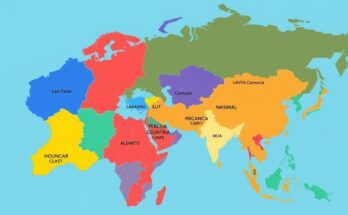In a striking decision, Indonesia’s Constitutional Court ruled last month that citizens must declare a religious affiliation, even if belonging to a minority faith, on their official documents, thereby nullifying a significant push to secure rights for atheists and non-believers. This legislation affirms the country’s status as the world’s largest Muslim-majority nation, recognizing only six religions: Islam, Protestantism, Catholicism, Buddhism, Hinduism, and Confucianism, while leaving atheists legally unrecognized.
Historically, atheism in Indonesia faces severe stigma, and despite a criminal code punishing blasphemy linked to spreading atheistic views, the absence of legal acknowledgment for non-belief itself results in systemic discrimination. Activists assert that although laws appear neutral, they are selectively enforced, depriving atheists of lawful equality. The court previously allowed minority religious groups to register under a non-specified category, instilling hope for a future recognition of those with no religious affiliations.
However, this hope fizzled when agnostic activists, Raymond Kamil and Teguh Sugiharto, petitioned the court to omit the religion field on identity documents and were met with rejection. Justice Arief Hidayat upheld that recognizing non-belief contradicted the foundational ideology of Pancasila, which mandates faith in a divine being, thus casting aside claims that non-believers are entitled to equal treatment.
The ruling resonates an alarming truth: there is little support for the rights of non-believers on both a local and international scale. Researchers estimate there are about 3.5 million atheists in Indonesia, though many conceal their beliefs due to societal pressures and legal risks. Human Rights Watch has noted a troubling trend of rising Islamic fundamentalism that may influence judicial attitudes towards religious belief autonomy.
The international community remains relatively silent on this issue, despite growing scrutiny of religious freedom violations in Southeast Asia. NGOs documenting humanist and atheist struggles highlight the challenges faced in countries like Indonesia, where state and religion are intertwined. Despite setbacks, rights advocates believe that change is possible through education and persistent legal challenges against the laws that suppress non-belief.
The court’s decision, though discouraging, might also spur future constitutional challenges aligning more with pluralistic values.
Indonesia’s Constitutional Court ruled that all citizens must declare a religion on official documents, denying rights to atheists and non-believers. Despite a push for recognition, recent petitions were rejected, reinforcing the absence of legal status for non-believers. International advocacy for their rights is scarce, as societal stigma against atheism persists amid rising fundamentalism.
In summary, Indonesia’s Constitutional Court has reaffirmed a legal framework that anchors citizenship to religious affiliation, effectively sidelining atheists and non-believers. Despite the country’s multitudes, non-belief remains unrecognized, reflecting a daunting barrier against atheists pursuing equal rights. With a silent international spotlight on their plight, advocacy for the rights of non-believers is crucial to foster understanding and challenge deep-rooted legal inequities.
Original Source: www.dw.com



